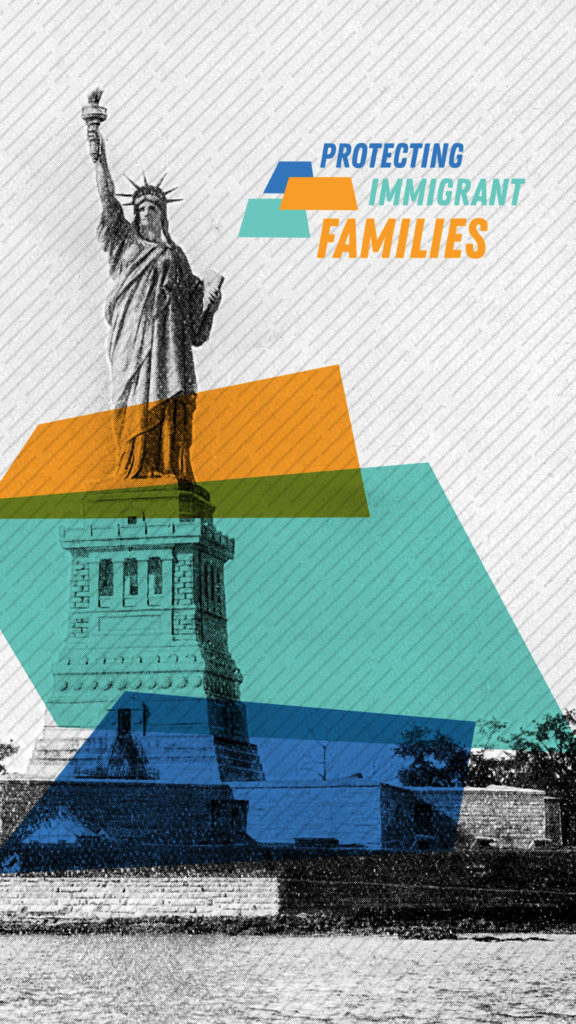
Urban Institute: due to fear, one in seven adults in immigrant families forgoed public benefits
Earlier this month, in a post headlined, “For immigrants, fear, confusion, and a chilling effect,” we detailed how a Trump Administration rule not even implemented yet is harming immigrants and immigrant families.
The piece was partly anecdotal; it reported, for instance, on a 9-year-old Latina girl who developed severe health problems emanating from her fear that her parents would be deported from their North Carolina home while she was away at school. Her parents delayed her treatment for fear it would affect the family’s immigration status.
Now, thanks to our friends over at the Urban Institute, we now have statistics to back up the anecdotes. A new briefing paper released last week by the Urban Institute shows that one in seven adults in immigrant families did not participate in a noncash benefit program in 2018 out of fear of risking future green card status.
Some background is probably in order. The Trump Administration late last year proposed an expansion of the “Public Charge” rule, signaling a significant departure from current immigration policy. The proposed rule, which could be implemented by this fall, would consider an immigrant’s past use of noncash public benefit programs, such as SNAP or Medicaid, as a negative factor in applications for green cards (i.e., permanent residency) or temporary visas. The rule would also weigh low income, poor health status and other characteristics as negative factors.
As the Urban Institute reports, even before the proposed rule was put forth for public comment, rumors about it were circulating. Human service providers reported widespread “chilling effects” on immigrant families’ participation in safety net programs for fear of potential immigration consequences.
Back in December, as part of its annual Well-Being and Basic Needs Survey, the Urban Institute asked 1,950 adults who are foreign-born or living with foreign-born family members whether they or a family member had avoided participating in public benefit programs in the past year because of concerns about future green card status.
Among the findings:
About one in seven (13.7 percent) adults in immigrant families reported that they or a family member did not participate in – meaning they did not apply for or dropped out of – a noncash benefit program in 2018 out of fear of risking future green card status. Among adults in low-income families earning less than 200 percent of the federal poverty level, this rate was one in five (20.7 percent).
Adults in immigrant families living with children younger than 19 were more likely to report avoiding benefit programs (17.4 percent) than adults without children in the household (8.9 percent).
Among adults reporting chilling affects, 46 percent reported that they or someone in their family did not participate in SNAP; 42 percent did not participate in Medicaid/CHIP; and 33.4 percent did not participate in housing subsidies.
Most adults in immigrant families reported awareness of the proposed rule (62.9 percent). Among adults who had heard “a lot” about the proposed rule, nearly one-third (31.1 percent) reported chilling effects in their families.
“This evidence reveals that although it has not been finalized, the proposed expansion of public charge has already led families to stop participating in programs that help them meet their basic needs,” the Urban Institute concludes. “We anticipate chilling effects will be exacerbated once the U.S. Department of Homeland Security finalizes the rule.”
The Urban Institute report confirms what social workers on the ground are reporting anecdotally – participation in public benefit programs is down, and threats to public health could subsequently be on the rise.
Zahra Koopaei is WIC Bureau Chief for the Houston Health Department. She told Houston Public Media that local enrollment in WIC has dropped by nearly 20,000 clients since Trump was elected.
“It started out actually since the election, we were at 72,000 at the time,” she said. “Currently we’re 52,000 and some clients.”
She told Houston Public Media she has been working with WIC in Houston for nearly 30 years and she has never seen this drastic a drop in enrollment. “We have never had this issue before, never dropping by chunks like this. Our clients are worried. They’re scared to come to us.”
What is the human impact? What is the long-term impact for public health?
“If you put fear into people so that they won’t even take care with the assets that we have available, the situation’s just going to get much worse and there’s going to be a worse financial price to be paid, too, so it’s a lose-lose proposition,” Houston Health Authority Dr. David Persse told Houston Public Media last year.
Persse added that if the proposed rule is implemented, people should expect a number of negative impacts on public health: fewer people will access preventative care (leading to more hospitalizations and thus a higher burden on taxpayers), more outbreaks of diseases that could be prevented by vaccinations, and increase in preventable deaths, and more malnourished children.

